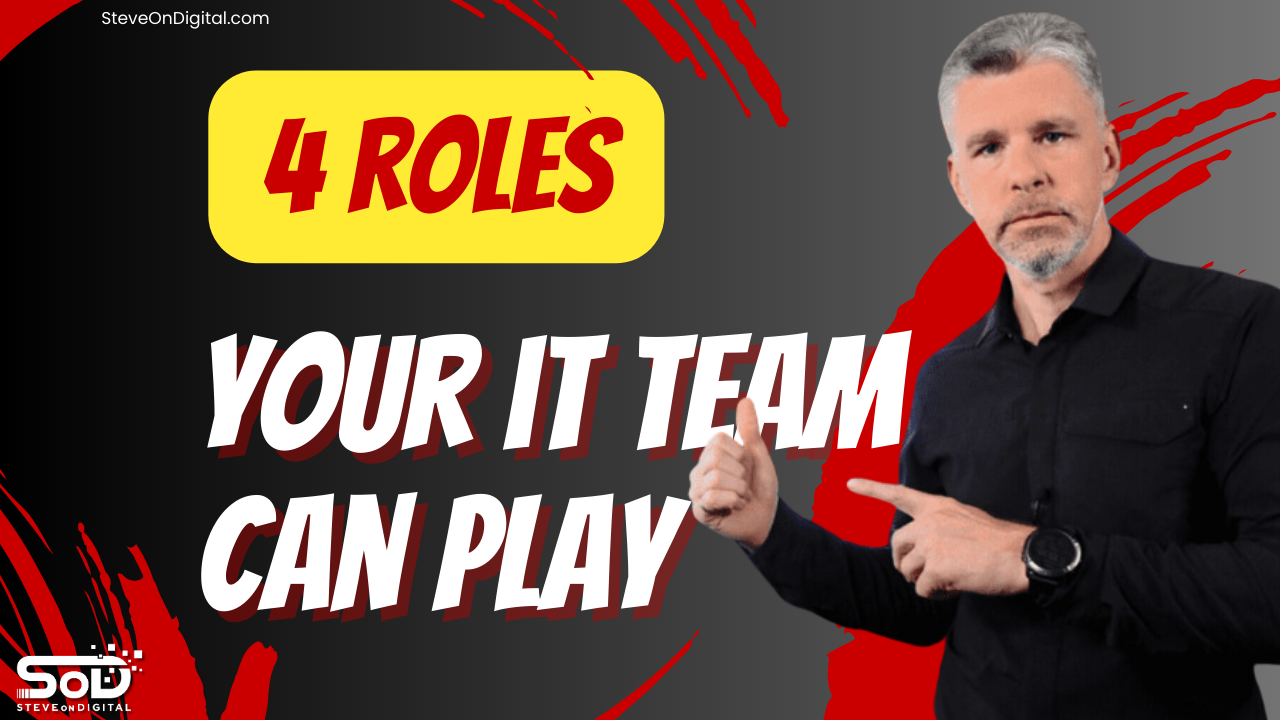What role does your IT team play in your company’s business development? Is it an integral partner or is it rather an expense? I completely agree with Deloitte when they assert that there are four possible roles that an IT team can play within a company: cost center, IT provider, strategic partner and strategic driver. And the role is determined uniquely by how senior management views the IT team. If it is seen as an integral partner, senior management will empower the IT team to make strategic improvements. If, however, the IT team is seen as a necessary evil, the team will remain passive, only carrying out directives. To unlock your company’s full potential, the IT team must become a strategic partner and perhaps even a strategic driver.
As part of senior management, I am convinced that you must avoid treating your IT team as a commodity, as just a cost center or the slightly better IT provider. As a cost center, the IT team’s main purpose is to maintain current technology. This, of course, is short-sighted; this role does not tap into all the talent within the team. As a cost center, the relationship between the IT department and management is transactional. The IT team only fulfils its limited mandates. It does not take risks, suggest viable alternatives or find improvements on the plan. The team knows that its initiatives are not welcome so it only carries out the directives from above. And these directives revolve around reducing expenses.
Another role that the IT team can play is IT provider. In this role, the IT team is still a commodity although its mandates are medium-term rather than short-term. Its main purpose in this role is to enable business needs. Senior management allows more of a give-and-take in this relationship. Therefore, the IT team is able to give some input into projects, but it is not given free rein to propose new solutions. Trial-and-error is allowed to a point if the “errors” don’t happen “too often.” In sum, the objectives of an IT team that is seen as an IT provider are to carry out management’s ideas.
To take advantage of the skills represented on your IT team to improve your company, you will want to see it not as a commodity but rather as a strategic differentiator. This takes a change in mindset: refusing to see technology as an expense but rather as an investment. When the IT team is viewed as a strategic partner in the development of the company and its products and/or services, it is empowered to provide advanced technological solutions to complex problems. The IT team needs to be included in strategy meetings in order to contribute to the company’s success. The department does not only need to be involved in developing strategies, but they need to have the freedom to question decisions and push back against management’s ideas if the team is to be effective. Leverage the skills and perspectives of the IT department to reach full potential.
There is a fourth role the IT team can play, especially in tech companies, that of strategic driver. When a company’s products and services are digitally based, such as in software or application development, the IT team becomes much more than a partner. It becomes the core of the business. In this role, the IT department is given the permission to take risks and to learn from failures. It not only maintains the business’s current operations, but ensures its future. It is a long-term endeavour.
When the perspective switches to seeing technology as a strategy rather than an expense, the team becomes proactive rather than reactive. Yes, it strives to find the best solutions for the business in its current configuration, but more importantly it designs strategies for the future. Since it is future-focused, an IT team that is a strategic partner or driver needs a digital roadmap to logically plan out the implementations of technology. A digital roadmap is key to providing excellent service to your customers, gaining a competitive edge, and keeping your teams motivated. I encourage you to leverage your IT team to become a strategic differentiator.




